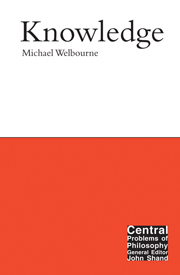3 - Analysing knowledge the modern way
Summary
Preamble
Plato was an optimist about knowledge: he believed it could be attained and could be taught to other people. To be sure, in the Republic at any rate, he believed it was beyond the capacities of most of us; but the élite in his republic, the so-called philosophers or philosopher cadets, have both the intellectual power and the right disposition to acquire it. What they need is the right schooling. In the end, in his valedictory work on the topic, he is unable to find a satisfactory account of what exactly knowledge is, and he never adequately works out how essentially subjective states of belief relate to, or perhaps transmute into, knowledge of objective realities. But this does not undermine his faith in the possibility of knowledge; it is the proper and achievable goal of all philosophical enquiry. The Academy that he founded was the practical expression of this vision: an institution where knowledge could be pursued cooperatively and cultivated in others.
Descartes, too, believed that, under God, the rational intellect could gain an infallible insight into truth. But he reached this position by a very different route from Plato's. As mentioned in the Introduction, he was greatly influenced by the recently rediscovered writings of the ancient sceptics. These philosophers had specialized in the development of arguments that were designed to subvert all beliefs. Their overall purpose, however, was not nihilistic but therapeutic.
- Type
- Chapter
- Information
- Knowledge , pp. 36 - 68Publisher: Acumen PublishingPrint publication year: 2001

